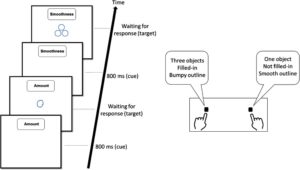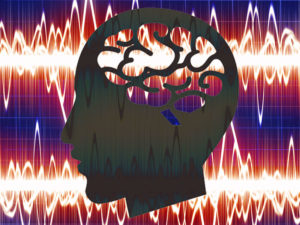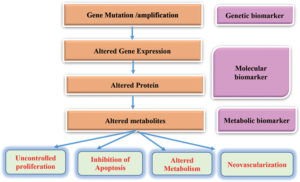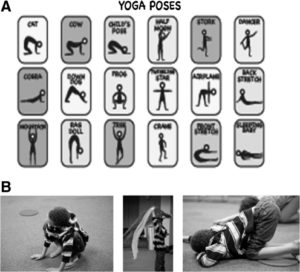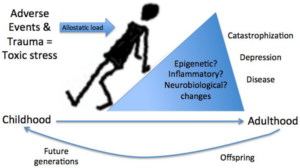Learning from Impatience
By John M. de Castro, Ph.D.
“Since the ultimate patience is effortless, perhaps the opposite of impatience is not patience but rather contentment. By not chasing after the whims of the ego, we have the chance to discover a deep contentment that manifests in our life as great patience.” – Gil Fronsdal
Sitting waiting for my partner to get up from the meditation cushion after we completed our morning meditation as she said her morning Gatha and sat back and stretched and massaged her legs, I felt very unhappy. I had completed my meditation and gotten up from the mat and was ready to get on with my morning. But, I had to wait, so we could complete our bows together as we always do. This was a very minor instance of impatience but these minor occurrences are often the best times to learn. I suddenly saw that what was happening to me was a perfect example of what the Buddha taught about suffering.
He taught that most suffering is self-inflicted. We constantly make ourselves unhappy over and over again each and every hour of each and every day. We do this, in general, by wanting things to be different from what they are. Our resistance to what is going on, is the source of our unhappiness. As Adyanshanti like to say “What you resist, persists.” When we fail to simply accept things as they are, we suffer. I wasn’t accepting waiting for my partner. I wanted it to be different. So, I made myself unhappy. Had I simply waited and enjoyed a peaceful moment in a beautify morning, I would have not only not suffered, but would have felt happiness. This was my choice to self-inflict misery.
The Buddha taught that seeing this and learning to let go of the need to change things and make them different is a key means to move forward on the path to spiritual awakening. But, how can we overcome the minds constant need to control everything in a never ending search for something better? The first step is to recognize when we are fighting reality. This is where impatience becomes such a powerful key. It is a marker indicating that we’re not accepting things as they are. This often happen automatically and without awareness. So, a fundamental skill to acquire it to learn to recognize impatience as it arises. A good way to do this is to focus on our internal, physical feelings that arise every time we’re experiencing impatience. When impatience is recognized simply pay close attention to exactly what impatience feels like. In this way we can become more sensitive to this state and better recognize impatience when it arises.
Impatience is often accompanied by deep breaths or sighs, shifting posture and/or feet, foot tapping or other small repetitive movements perhaps trembling, feelings of anger, or increased heart rate and blood pressure. In the case of my impatience after meditation, I found myself shifting my posture nervously, tensing the muscles in my face, repeatedly looking over my shoulder to see if my partner was done, and having repeated thoughts about how soon it will be over. The actual response and how easy it is to sense it can be very individual. So, it is important that everyone investigate their own feelings whenever impatience occurs. I find that driving is a wonderful opportunity for working with patience. There’s nothing like heavy traffic or long red lights to evoke impatience. So, this is a great time to pay attention to the physical feelings and responses you’re producing to become sensitized to the state of impatience. Another great time is during meditation. A good cue is thinking about what time it is and how long till the bell rings. This will happen to me sometimes multiple times during a single meditation session and it a wonderful signal that impatience has set in. This triggers an investigation of the feelings associated with the impatience.
Once, you’ve attained a degree of sensitivity and can readily detect when impatience arises, there is an opportunity to develop skill at letting it go and enjoying the present moment. But, you can’t simply try to make impatience go away. If you do, you’ll find that you can become impatient with impatience; you want things to be different than they are. This actually can make you feel worse and punishes your efforts to let impatience go. Had I said something to my partner in trying to speed things up, it would have made matters worse, not better.
There are two excellent methods to develop the skill of letting impatience go. The first is simply to watch it; to mindfully pay attention in the present moment to it. If you do, you’ll find that it won’t take long for it to spontaneously dissipate. As you become interested in the impatience you become less impatient. The second method is to change the subject to present moment awareness. Impatience is wanting things to be different, so becoming aware of the beauty and wonder of the present moment is antithetical to wanting to change it. With my impatience after meditation, I simply needed to shift my attention to the beauty of the morning, the fresh cool air, the colorful sky, the green of the grass and trees, and the beauty of the flowers. This would replace the impatience with happiness. What an improvement that would have been?
These practices are relatively easy to do, but you have to detect the impatience in the first place and remember to do the practices in the second. This takes practice. But working on it will help you to become a happier person and better able to tolerate the inevitable obstacles that you face every day of your life. You’ll be amazed at how much better your life becomes.
“Pausing and focusing on your breath in moments of frustration and impatience will, at the very least, help you reduce feelings of stress. At the most, you might gain a new perspective and learn to practice patience more often and naturally!” – Cassie Stiftl
CMCS – Center for Mindfulness and Contemplative Studies
This and other Contemplative Studies posts are also available on Google+ https://plus.google.com/106784388191201299496/posts

